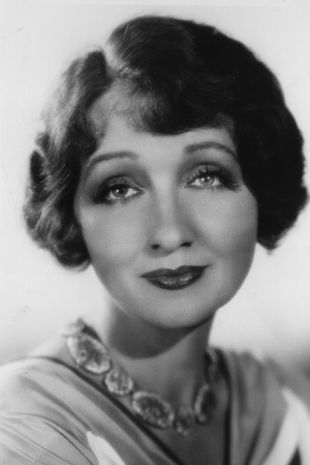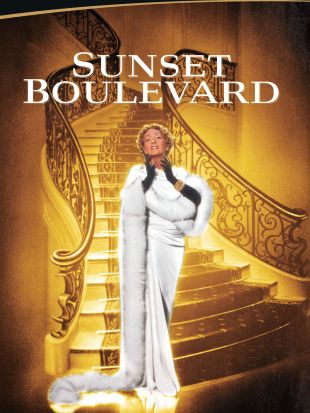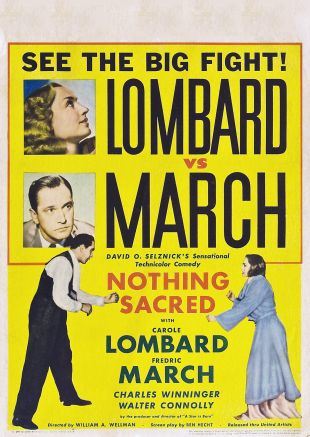American actress and gossip columnist Hedda Hopper was born Elda Furry, but used the last name of her then-husband, Broadway star DeWolf Hopper, when she launched her movie career in 1915. Never a major star in silent films, Hedda was a competent character actress specializing in "best friend" and "other woman" roles. When she divorced DeWolf Hopper, Hedda found that she had to take any roles that came her way in order to support herself and her son DeWolf Jr. (who later became a film and TV actor under the name William Hopper). Her career running smoothly if not remarkably by 1932, Ms. Hopper decided to branch out into politics, running for the Los Angeles city council; she lost and returned to movies, where good roles were becoming scarce. Practically unemployed in 1936, Hedda took a job on a Hollywood radio station, dispensing news and gossip about the film capital. Impressed by Hedda's chatty manner and seemingly bottomless reserve of "dirt" on her fellow actors (sometimes gleaned from her own on-set experiences, sometimes mere wild-card speculations), the Esquire news syndicate offered Ms. Hopper her own column, one that would potentially rival the Hearst syndicate columnist Louella Parsons. Carried at first by only 17 papers, Hedda did much better for herself by switching to the Des Moines Register and Tribune syndicate; her true entree into the big time occured in 1942, when she linked up with the behemoth Chicago Tribune-Daily News syndicate. Between them, Hedda and archrival Louella Parsons wielded more power and influence than any other Hollywood columnists - and they exploited it to the utmost, horning in uninivited at every major social event and premiere, and throwing parties that few dared not to attend. While Louella had the stronger newspaper affiliations, Hedda was more popular with the public, due to her breezy, matter-of-fact speaking style and her wry sense of humor; she also more flamboyant than Louella, given to wearing elaborate hats which cost anywhere from $50 to $60 each. On the credit side, Hedda touted several new young stars without expecting favors in return from their studios; she'd admit her errors (and there were many) in public, giving herself "the bird" - a bronx cheer - during her broadcasts; and wrote flattering and affectionate pieces about old-time stars who had long fallen out of favor with filmakers. On the debit side, Hedda carried long and vicious grudges; demanded that stars appear for free as guests on her radio program, or else suffer the consequences; and set herself up as an arbiter of public taste, demanding in the '50s and '60s that Hollywood censor its "racy" films. Hedda's greatest influence was felt when the studio system controlled Hollywood and a mere handful of moguls wielded the power of professional life and death on the stars; the studios needed a sympathetic reporter of their activities, and thus catered to Hedda's every whim. But as stars became their own producers and film production moved further outside Hollywood, Hedda's control waned; moreover, the relaxing of movie censorship made her rantings about her notions of good taste seem like something out of the Dark Ages. Also, Hedda was a strident anti-communist, which worked to her benefit in the days of the witchhunts and blacklists, but which made her sound like a reactionary harpy in the more liberal '60s. Evidence of Hedda's downfall occured in 1960 when she assembled an NBC-TV special and decreed that Hollywood's biggest stars appear gratis; but this was a year fraught with industry strikes over wages and residuals, and Hedda was only able to secure the services of the few celebrities who agreed with her politics or were wealthy enough to appear for free. By the early '60s, Hedda Hopper was an institution without foundation, "starring" as herself in occasional movies like Jerry Lewis' The Patsy (1964) which perpetuated the myth of her influence, and writing (or commissioning, since she'd stopped doing her own writing years earlier) long, antiseptic celebrity profiles for Sunday-supplement magazines.

Hedda Hopper
Share on

/_derived_jpg_q90_310x470_m0/TheWomen1939-BoxArt.jpg)
